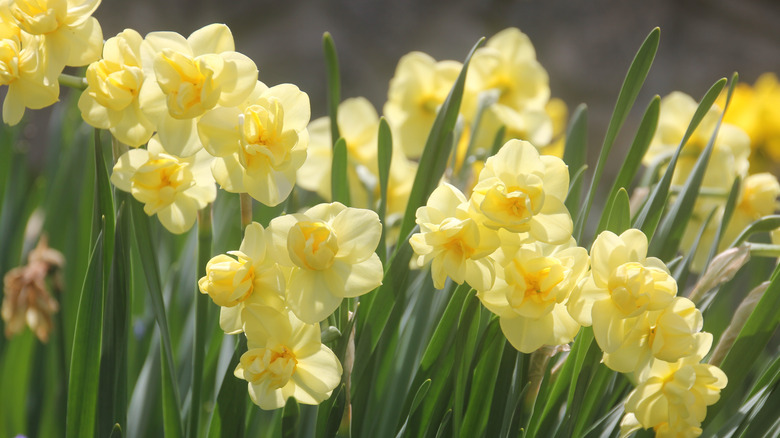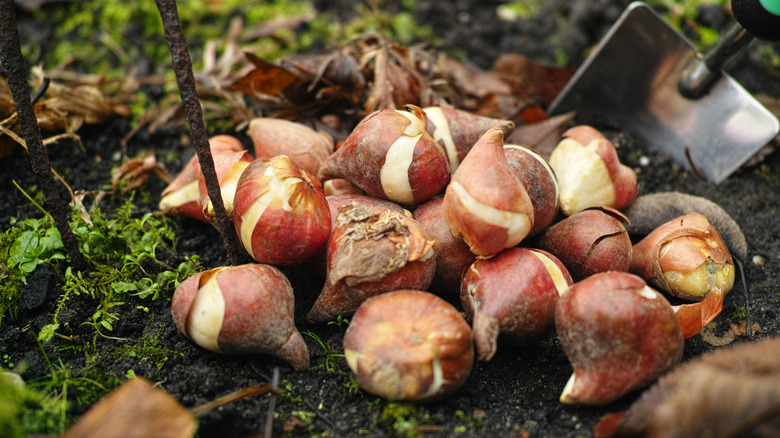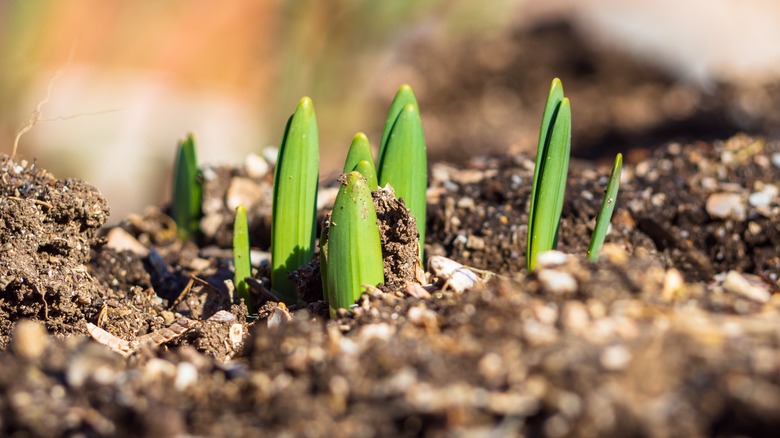What Is The Best Time Of Year To Plant Daffodils?
There are a few telltale signs of winter turning to spring — warmer temperatures, longer days, melting snow, and bright flowers popping out of the ground. One of those flowers associated with the beginning of spring are daffodils, or narcissus. The perennial flowers are one of the earliest bloomers of the season, per Longfield Gardens. While the most popular color is yellow, there are also white, pink, and orange daffodils, and they grow in multiple different shapes.
While daffodils may start popping up during the early spring months, that doesn't mean spring is planting season. Unless you're buying nursery grown daffodils in the spring and planting them directly into the ground, you'll need to plant the bulbs in advance to get the beautiful flowers to grow as the season changes. This includes finding the right bulbs, planting them properly, and ensuring they'll survive the colder months, as well as knowing the right time to plant them.
Before the first frost
If you want to wait until spring to plant daffodils, you'll need to head out to your local nursery or garden center to pick up pre-grown flowers that you can plant directly into the grown or a garden bed. However, if you want to grow them in your garden from the bulb, Dutch Grown says to do so in the fall.
Daffodil bulbs need to be exposed to a cold environment to stimulate root growth, which is why they grow so well over winter. They're hardy enough to survive the freeze, but you shouldn't wait too long to plant them, as the ground can get too hard. They're grown best in USDA hardiness zones 3 through 8; the winters in zones 9 or higher will likely be too warm to sustain their growth. Generally, you want to make sure the weather isn't going to go above 60 degrees Fahrenheit for the rest of the season, and that the ground is cooling off.
Daffodil planting tips
Once the weather is cool enough to plant your daffodil bulbs, you'll want to set them up for success. Note that how deep you plant your bulbs can affect how well they grow. According to Dutch Grown, if they're planted too shallow the temperatures above ground can stunt their root growth.
For this reason, you should plant them 6 inches deep, and roughly 6 inches apart, recommends Longfield Gardens, which also recommends planting them in triangular or rectangular formations as opposed to straight rows. Daffodils are also very susceptible to wet soil, so make sure they're not planted somewhere where water tends to pool. That being said, they do need to be watered thoroughly once after planting.
Daffodil bulbs also need to be planted somewhere they'll receive an ample amount of sun, though they can survive in lower light areas. It's also recommended that you plant varying daffodil varieties, not only for the color and shape variation, but so they'll bloom at different times and won't leave your garden beds looking bare once they die down.


